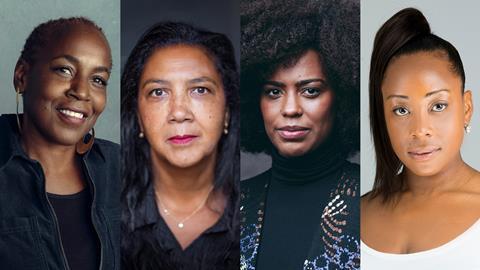
The British Film Institute (BFI) is partnering with Yolonda Brinkley’s grassroots film movement Diversity In Cannes, set up to promote inclusion of marginalised groups at Cannes, for a curated programme of events with the aim of building meaningful creative and financial partnerships.
As part of the programme, a delegation of four UK Black female filmmakers, who are actively seeking partners for current projects, will go to Cannes to connect with their international peers.
Two Black female directors have qualified for competition in Cannes in the history of the festival – Mati Diop for Atlantics in 2019 and Ramata-Toulaye Sy, this year, with Banel Et Adama.
The cohort of UK filmmakers traveling to the festival as part of the programme are Rye Lane producer Yvonne Ibazebo; Greenacre Films co-founder Nadine Marsh-Edwards; Queen Of Glory producer Kelley Robins Hicks and Stolen producer Shantelle Rochester.
With additional support from the British Blacklist and Times Up UK, the programme includes two days of events, which will see Black filmmakers talk through their experiences, achievements and perspectives.
Panels include ‘Demystifying film finance’ at the UK Pavilion at (Friday May 19, 4pm), moderated by the BFI’s Ama Ampadu. There’s also ‘Cannes you see us? – Creating Space and Celebrating Black Women In International Film’ (Saturday May 20, 10am) at the Marché du Film, moderated by Brinkley, that will explore what it is to be a filmmaker from a historically marginalised background. Confirmed speakers are directors Johanna Makabi and Zoey Martinson and producers Rochester and Robbins Hicks.
Melanie Hoyes, head of inclusion at the BFI, said: “After an overwhelmingly positive response to a very informal coming together of Black female talent at last year’s festival, it became clear how rare opportunities to celebrate female filmmakers of colour are.
”It has been a pleasure to shape this programme with our partner Diversity in Cannes, supported by the British Blacklist and Times Up UK; organizations who have been championing historically marginalised communities for so many years.
“We hope the events, coupled with supporting a group of UK filmmakers to travel to Cannes, offers a chance for international Black female filmmakers to develop creative pathways that serve their own voice and artistic practices, whilst operating in a structures that often presents them with barriers.”
Brinkley added: “Black women directors have been grossly underrepresented and have gone unrecognised at the Cannes Film Festival since inception. In 76 years, there’s been only two in competition, Mati Diop in 2019 and Ramata-Toulaye Sy this year. While I celebrate and uplift Sy, the Cannes Film Festival still has work to do. However, I have zero interest in fighting the patriarchy, as you know what they say about old dogs and new tricks. Instead, I will use the Diversity in Cannes platform to honor global black women in film at the Cannes Film Festival, indefinitely, and I’m excited to partner with Melanie Hoyes and the BFI to amplify their voices.”
























1 Readers' comment